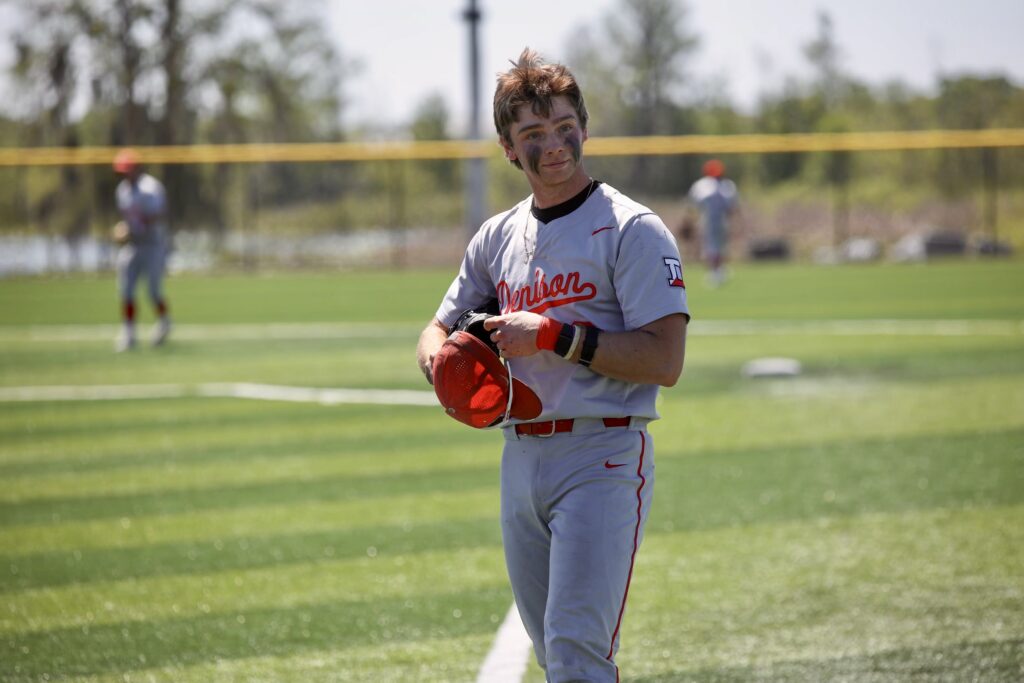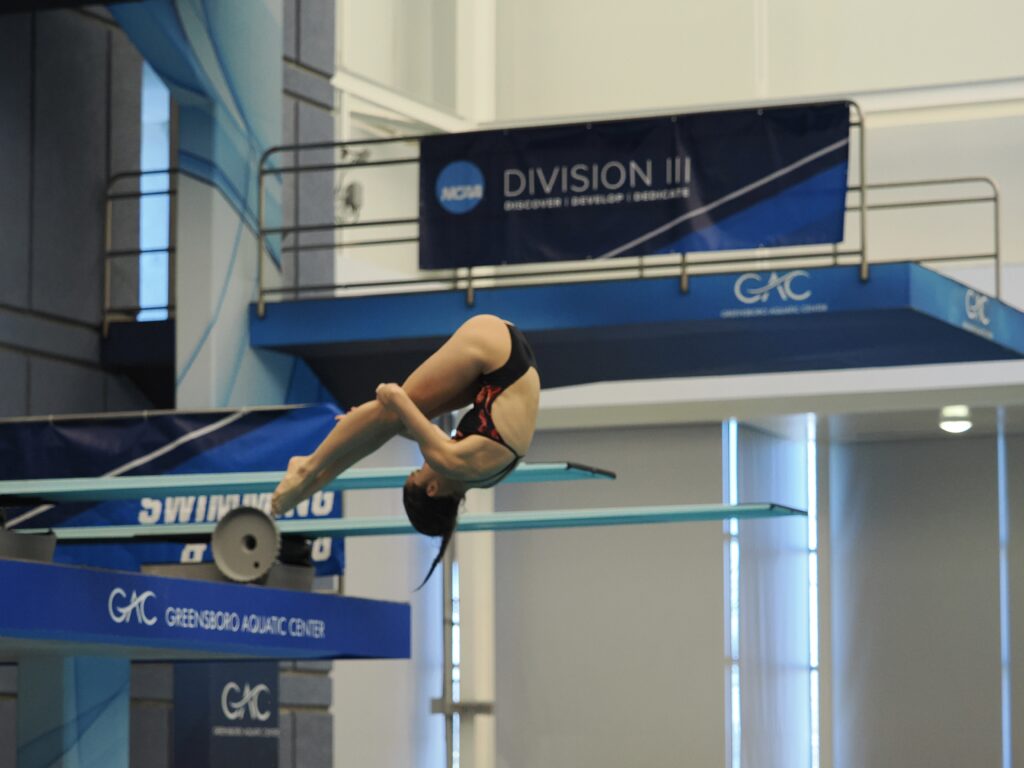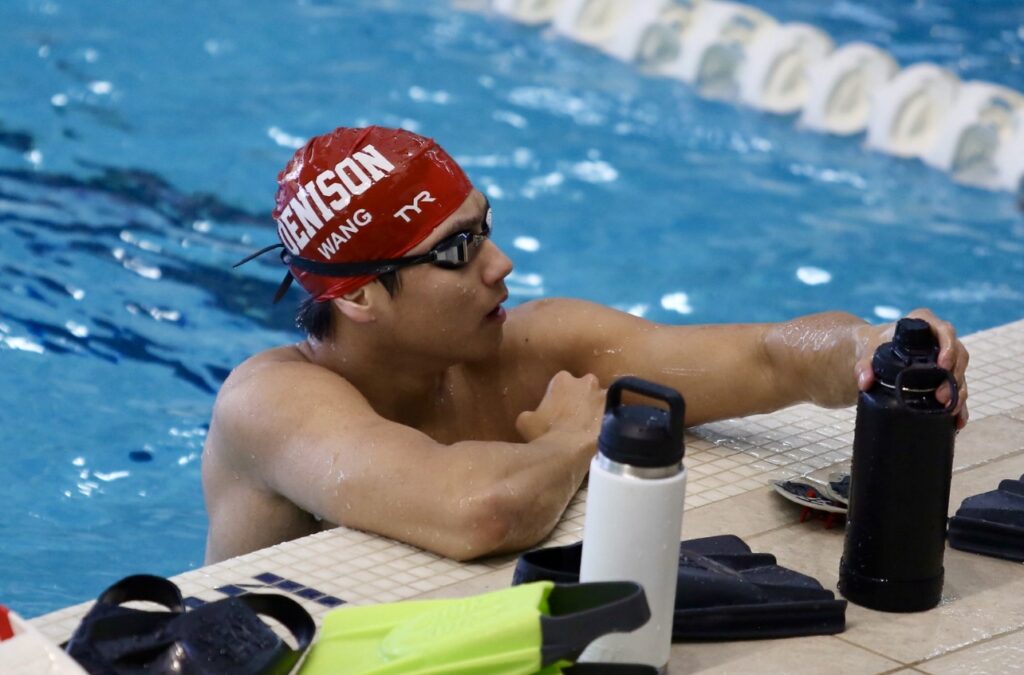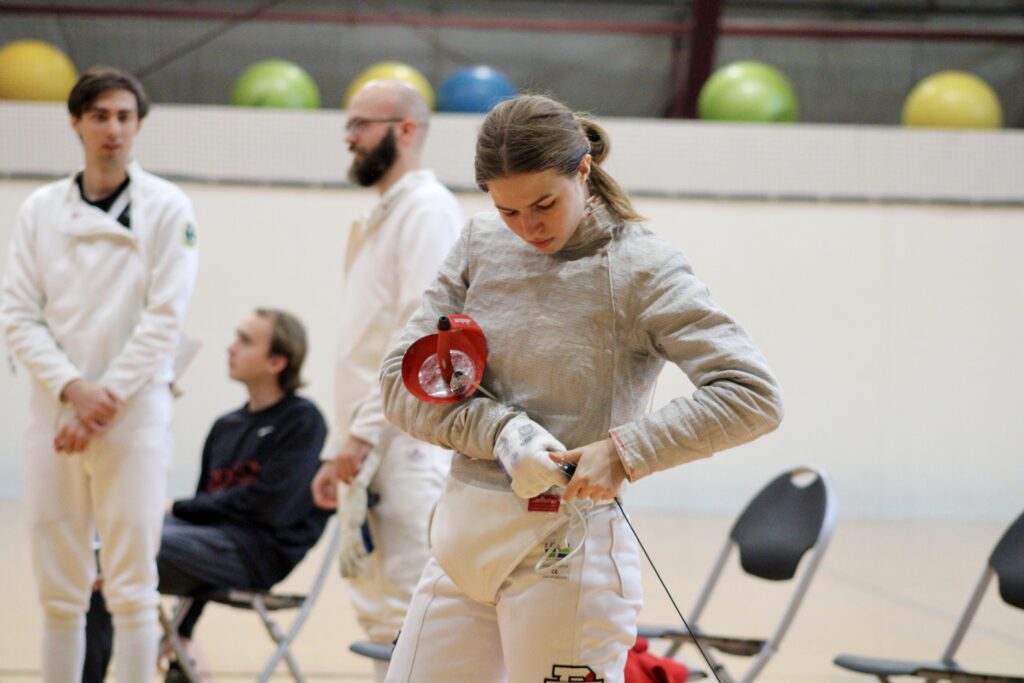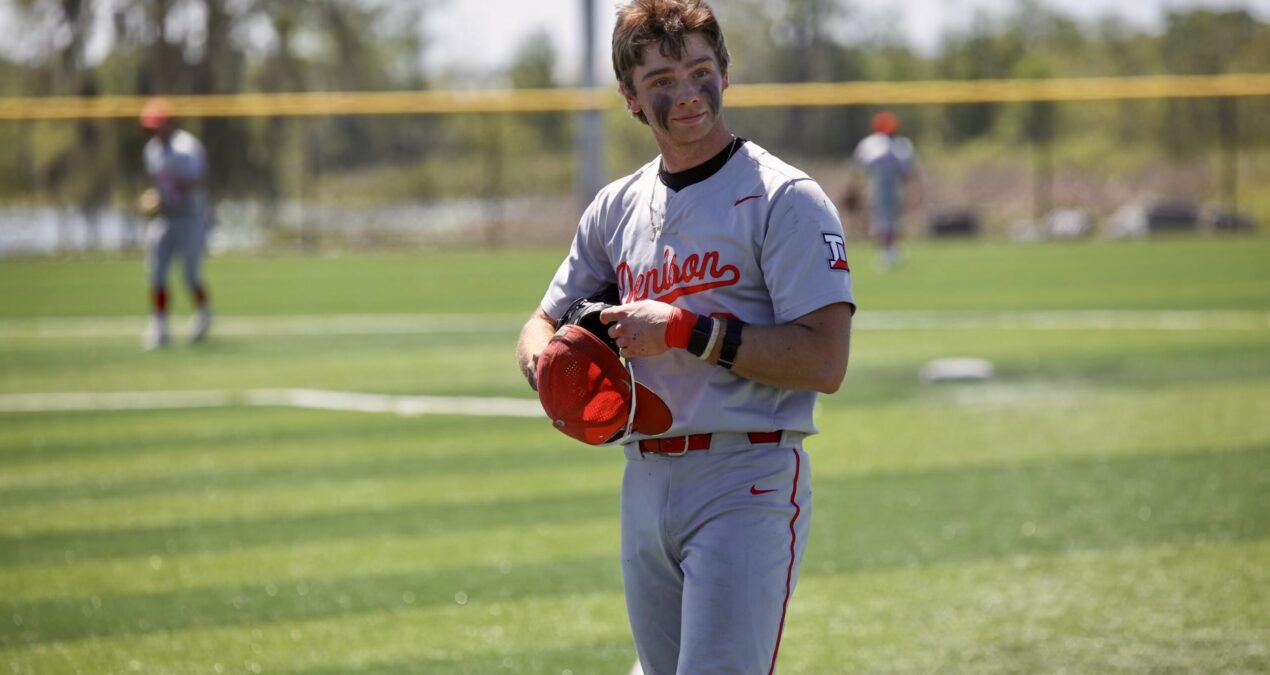Uyen Le, Special to The Denisonian–
Four members of Denison’s Top-50 Scholar-Athletes shared their experiences managing the demands of rigorous coursework alongside the intense commitments of collegiate athletics.
The Top-50 honor recognizes the highest-achieving student-athletes—sophomore standing or above—based on academic performance and grade point average.
Growing up in the heat of Atlanta, Max Fishbein ‘26 refused to step off the baseball field.
“I was the last kid who wanted to leave in 102-degree weather,” Fishbein said.
At Denison, Fishbein has become known for a methodical approach that pairs well with his Data Analytics major. He traces it back to a household defined by structure.
“My mom used a whiteboard to plan out every week for all four of us kids,” he said. “I think it’s just the environment I grew up in.”
That mindset stuck.
Each evening, Fishbein plots out his next day down to the hour. He finds the habit surprisingly freeing rather than restrictive.
“Being a student-athlete is easy because your schedule is already tight,” Fishbein said. “It’s comforting to know exactly where you’re supposed to be and when.”
But there’s more to him than a well-planned calendar. He takes just as much joy in the people around him, especially his teammates. For Fishbein, what sets Denison’s baseball program apart is the culture of unwavering support.
“It took more to win, and that’s something we all believe in. Whether you’re playing or you’re on the bench, we genuinely care about each other.” Fishbein said.
With one year left, Fishbein approaches each game and each day with intention, balancing his analytical mindset with a genuine commitment to his team’s collective success.
Standing backward on the diving platform, Lu-Si Minnich ‘26 waits quietly, blocking out everything until she hears the splash from the previous diver. Only then does she turn around, step forward, briefly prepare herself, and let her mind go blank.
“Once I start walking on the board, there’s nothing. You just go.” Minnich said.
Minnich has always noticed the little things others miss. Even as a child on family car trips, she would catch tiny details, questioning subtle signs and missed turns along the road.
Her mother, seeing Minnich’s affinity for detail and patience, suggested she try diving after initially competing in swimming, running and gymnastics.
Minnich found diving to be a perfect fit for her observant nature. She approaches each dive with purpose and emphasizes that each perspective brings new insight. If a dive doesn’t click, she reframes it, adjusts her technique and tries again.
“Different coaches see different points of focus, so it’s best to approach each dive from different ways,” Minnich said.
Balancing diving with a demanding financial economics major taught Minnich to prioritize productivity and sacrifice social outings. She has learned when and how to study best, driven by necessity rather than preference.
Yet, she views these sacrifices not as losses but as necessary steps toward something meaningful, and most importantly, enjoyable. For Minnich, diving represents more than sport; it’s a quiet practice of discipline, awareness, and honest self-reflection.
George Wang ‘26 still remembers the bleary mornings when his dad would wake up in the dark, prepare a quick breakfast and drive him to the pool. From those earliest practices, he’s made a steadfast commitment to swimming, all while navigating a demanding academic load.
He likens his approach to the resilience of a goldfish. Wang stays focused on his lane rather than worrying about what’s happening around him.
“Sometimes, you have to tune out distractions, be gritty, and just keep going,” Wang said. “Accept the environment you’re in because that’s all you’ve got.”
His teammates share the same perspective. During training, they push each other to stay motivated by cheering or even yelling encouragement to keep everyone locked in.
Wang compares challenging moments to stumbling across unfamiliar concepts in class.
“You realize how much you don’t know, but that’s a chance to grow.”
He sees a common thread between swimming and physics: consistency. Whether he’s refining a freestyle stroke or solving complex equations, he makes sure to track his progress.
Looking ahead, Wang has a clear plan for his final year at Denison: pursue research and get ready for graduate school. He’s quick to emphasize that success doesn’t hinge on innate ability.
“Grit doesn’t come naturally,” Wang said.“It’s not about pretending fatigue or frustration doesn’t exist; it’s about adapting and carrying on.”
When Natalie Isberg ‘26 picked up a fencing foil in high school, she was already years behind most of her peers.
“People typically start fencing in elementary or middle school,” Isberg said. “That wasn’t the case for me.”
Entering late into the sport gave her a sharp sense of urgency, and along with that, perfectionism.
At Denison, that tendency followed her into nearly everything she touched. She wanted to compete, to write for a student magazine, to hold a campus job. Her goal was simple: to excel in all of them.
“The hardest thing for me has been emotional balance,” Isberg said. “Perfectionism pushed me to want it all. I felt like I loved everything equally.”
That desire, while admirable, led her to a difficult truth: doing everything well all the time isn’t sustainable.
Fencing, ironically, was where she learned to let go. Injuries, exhaustion, and emotional noise sometimes trailed Isberg into competition. She began learning to move forward without ignoring what she felt.
“Don’t suppress it,” Isberg said. “Acknowledge it, talk it through, and then figure out your next move.”
As a creative writing major, Isberg trades the idea of perfect balance for genuine gratitude, especially for the bonds she’s forged with her teammates and coaches. Those connections, she believes, will carry on long after the final bout.
